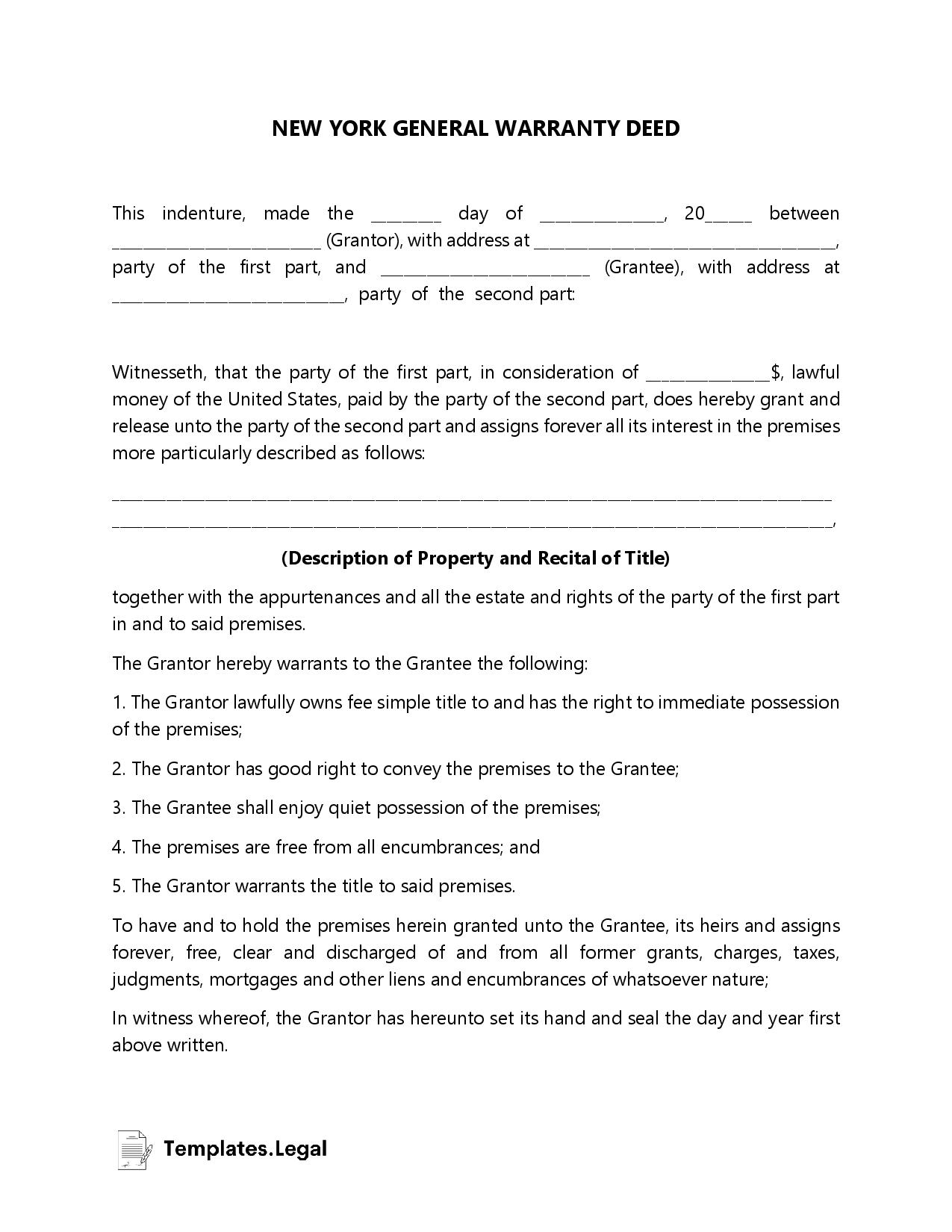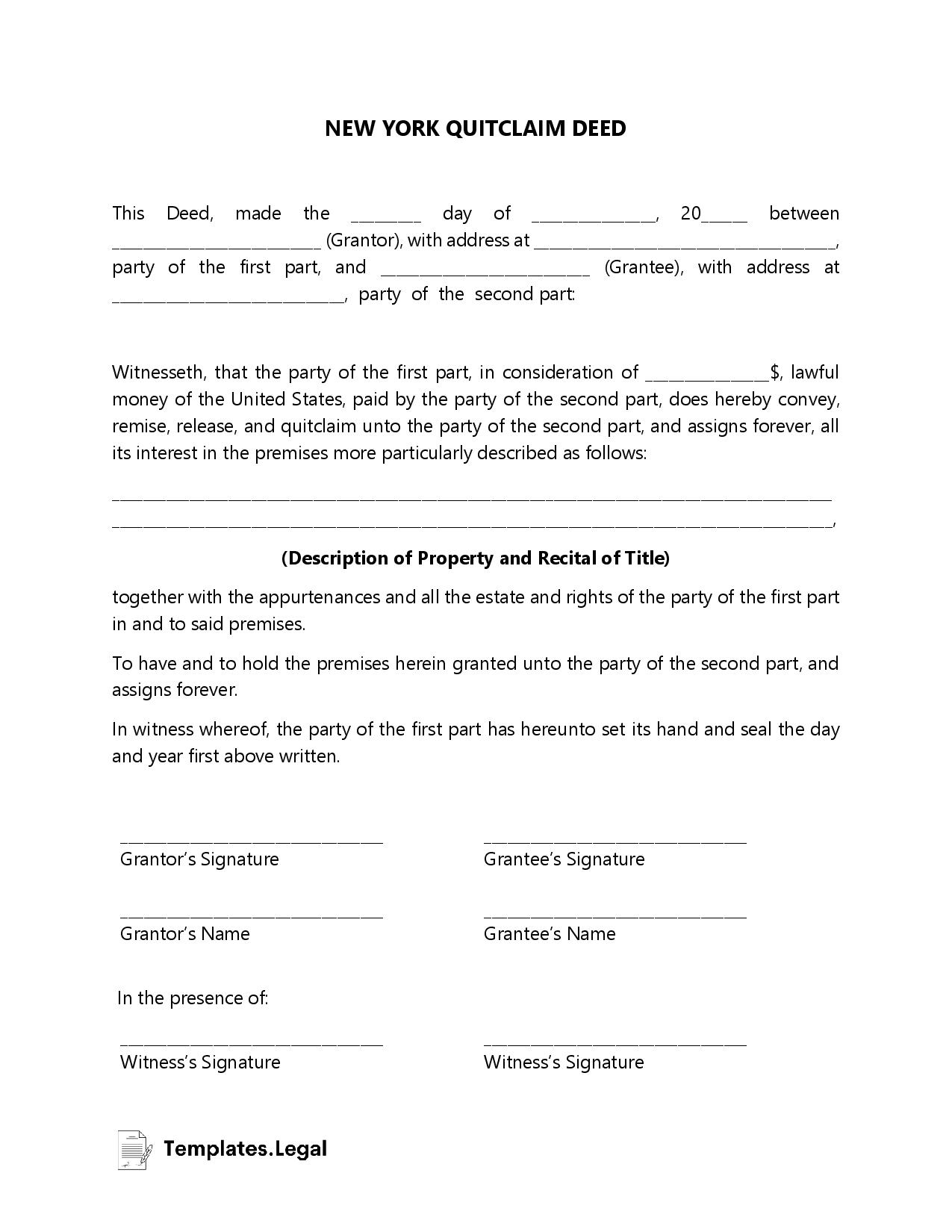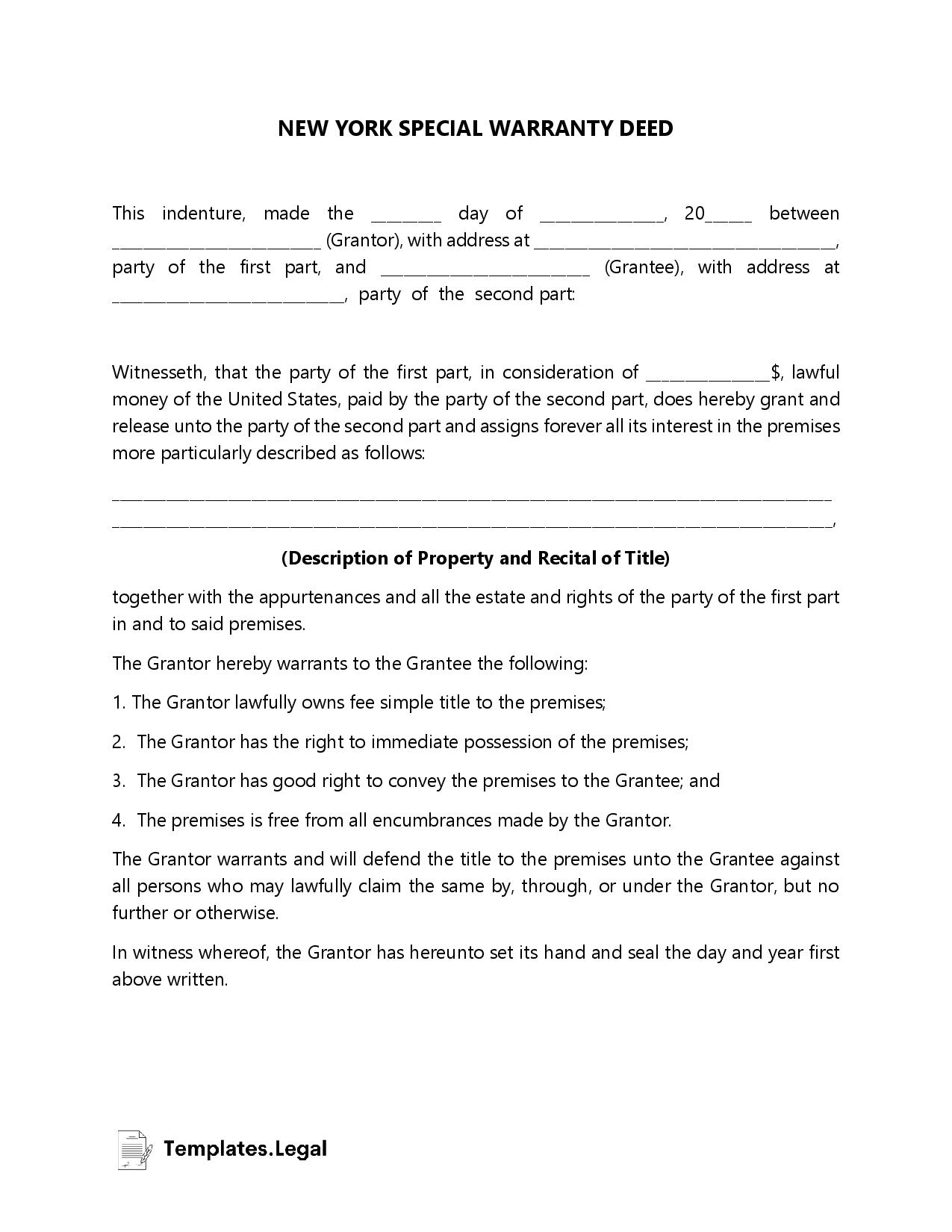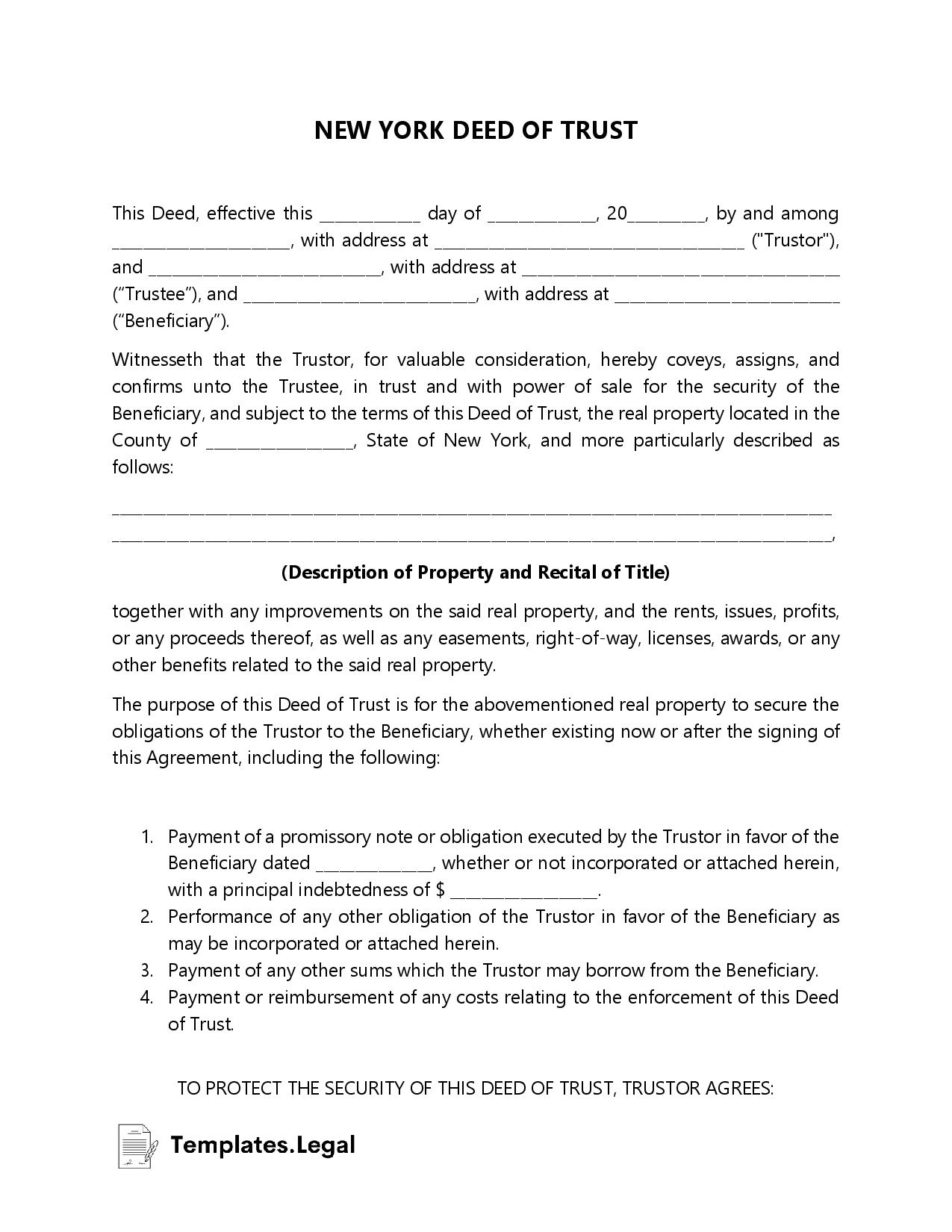New York Deed Forms & Templates
In New York, there are different kinds of deeds depending on the type of deal, who is transferring the property, and what rights specifically are transferring. Continue reading for a rundown of New York property deed forms.
New York General Warranty Deed
A New York general warranty deed can also be referred to as a deed with full covenants. This is the deed that provides the most protection for the property buyer (grantee).
With this type of deed, the seller (Grantor) confirms that they have the right to sell the property outright and that the property is free from any encumbrances (or it identifies any that exist). There should be a guarantee to a spotless title. Finally, it promises that the grantor, not the grantee, will be liable if there is a problem with the title.
New York Quitclaim Deed
A New York quitclaim deed offers buyers the least protection in a property transfer. Because of this, it’s usually used to transfer titles between family members or in the case of divorce- where all parties are known and likely have a personal understanding of the property.
It’s risky because it only guarantees that the seller relinquishes whatever interest they have in a property. It does not guarantee that they have the full claim of a title, that there are no other possible claimants, and that there will never be any challenge to a title. It has no promises or warranties- the grantor simply quits their claim on a property.
New York Special Warranty Deed
A New York special warranty deed is a little similar to a general deed, but there are some caveats. Like the general deed, you can use this to transfer property from a grantor to a grantee.
Basically, in New York, a special warranty deed only protects the title against defects that occurred during the period the grantor had the title. This means that that guarantee does not cover the property’s entire ownership history. These are not statutory forms in New York.
New York Deed of Trust
Some states use a deed of trust instead of mortgages. It works very similarly to a mortgage. This deed is an agreement between a home buyer and a lender saying that the lender will hold the property in trust until the buyer repays the loan. You may be familiar with this if you have attempted to buy property in other states.
Not all states allow you to sell property in this way. New York does not permit a deed of trust.
FAQs
These are the commonly asked questions for people looking to transfer property in New York:




